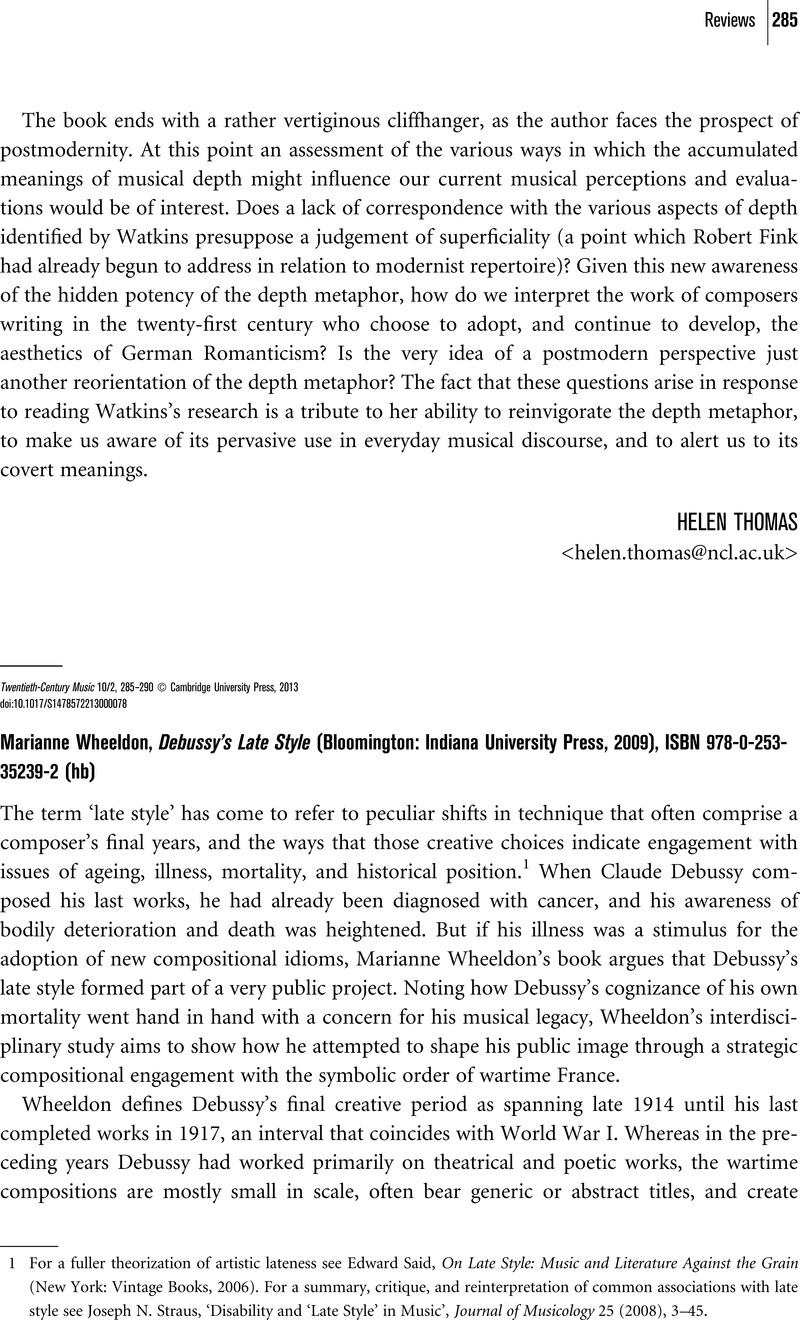No CrossRef data available.
Published online by Cambridge University Press: 12 August 2013

1 For a fuller theorization of artistic lateness see Said, Edward, On Late Style: Music and Literature Against the Grain (New York: Vintage Books, 2006)Google Scholar. For a summary, critique, and reinterpretation of common associations with late style see Straus, Joseph N., ‘Disability and ‘Late Style’ in Music’, Journal of Musicology 25 (2008), 3–45CrossRefGoogle Scholar.
2 Suschitzky, Anya, ‘Debussy's Rameau: French Music and Its Others’, Musical Quarterly 86 (2002), 398–448CrossRefGoogle Scholar; Fulcher, Jane, ‘Speaking the Truth to Power: the Dialogic Element in Debussy's Wartime Compositions’, in Debussy and His World, ed. Fulcher, Jane (Princeton: Princeton University Press, 2001), 203–32CrossRefGoogle Scholar.
3 Suschitzky, ‘Debussy's Rameau: French Music and Its Others’, 404.
4 For another transformation of the Berceuse narrative template see Wheeldon's analysis of En blanc et noir (47–53).